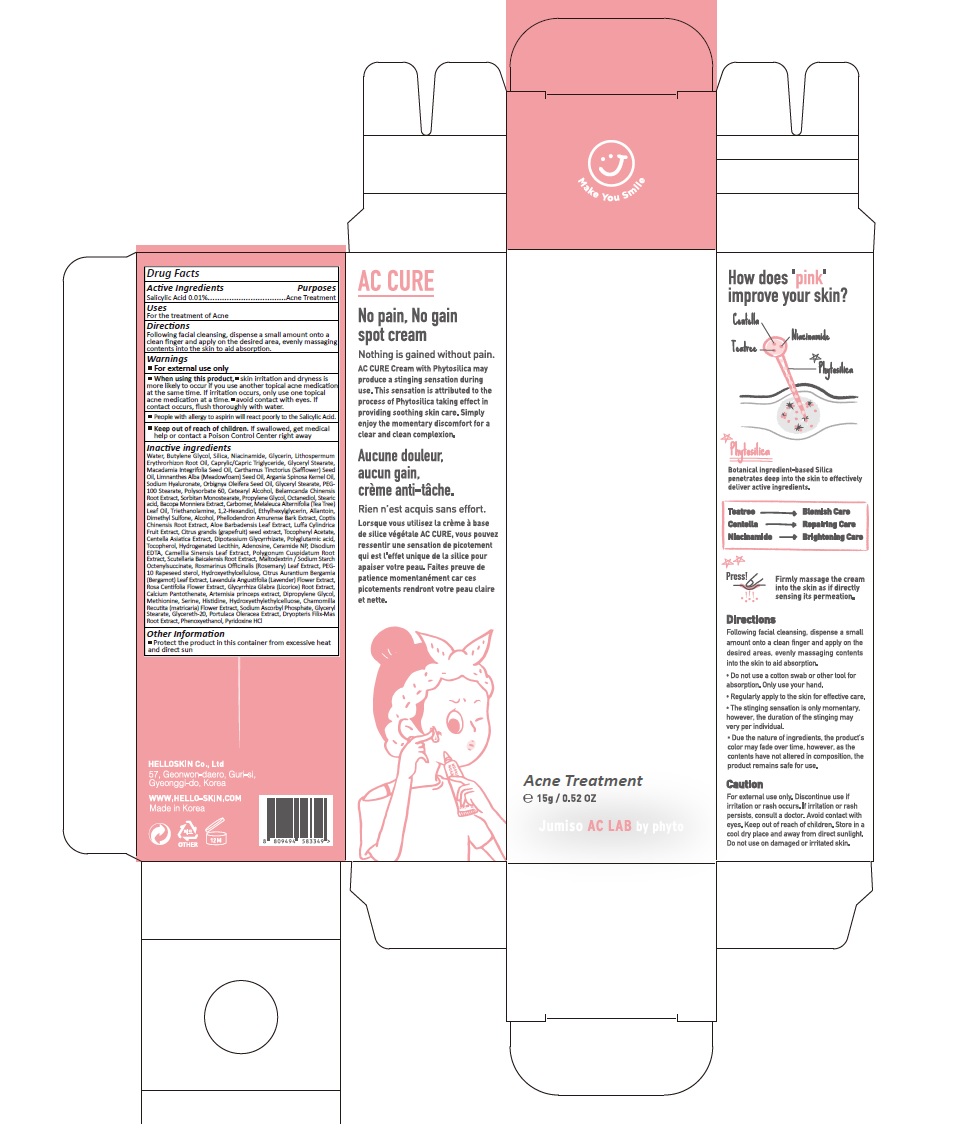Jumiso No Pain No Gain Ac Cure Spot | Salicylic Acid Cream while Breastfeeding

What is Jumiso No Pain No Gain Ac Cure Spot | Salicylic Acid Cream used for?
Brief: Acne Treatment
Is Jumiso No Pain No Gain Ac Cure Spot | Salicylic Acid Cream safe to use while breastfeeding? Can it interfere with growth and development of my kid?

Jumiso No Pain No Gain Ac Cure Spot | Salicylic Acid Cream Breastfeeding Analsys
Salicylic acid while Breastfeeding
SafeCAS Number: 69-72-7
It is topically used as a keratolytic, antiseptic, antifungal, dermatological and stomatological agent. At last update no published data on excretion into breast milk were found . Systemic absorption (distribution into the body) depends on the concentration of the product used and the duration of application. Absorption may reach 10 to 25% of the total amount applied on the skin. It is recommended not to use during lactation in large areas of skin or for prolonged periods. Available data on the elimination of Acetylsalicylic acid (Aspirin-ASA) in breast milk indicates it is clinically insignificant.No cases have been reported on Reye's syndrome by ASA through the breast milk which is considered very unlikely to occur with isolated and/or small doses used as antithrombotic treatments and anti-abortion measures, even less after application on the skin or topically in the mouth. Do not apply on the breast to prevent ingestion by the infant. If necessary, apply it after the feed and wipe it off thoroughly with water before the next feed.
Jumiso No Pain No Gain Ac Cure Spot | Salicylic Acid Cream Breastfeeding Analsys - 2
Salicylic acid while Breastfeeding
CAS Number: 69-72-7
No information is available on the clinical use of salicylic acid on the skin during breastfeeding. Because it is unlikely to be appreciably absorbed or appear in breastmilk, it is considered safe to use during breastfeeding.[1] Avoid application to areas of the body that might come in direct contact with the infant's skin or where the drug might be ingested by the infant via licking.
I already used Jumiso No Pain No Gain Ac Cure Spot | Salicylic Acid Cream and meanwhile I breastfed my baby should I be concerned?
Jumiso No Pain No Gain Ac Cure Spot | Salicylic Acid Cream is safe in breastfeeding and should not create any health problem for your baby but in case you feel any health issue associated with Jumiso No Pain No Gain Ac Cure Spot | Salicylic Acid Cream you should contact your doctor or health care provider. Be it pregnancy or lactation you shall keep your doctor informed.
My health care provider has asked me to use Jumiso No Pain No Gain Ac Cure Spot | Salicylic Acid Cream, what to do?
Definitely, Jumiso No Pain No Gain Ac Cure Spot | Salicylic Acid Cream is safe in lactation for baby. No wonder your doctor has recommended it.
If I am using Jumiso No Pain No Gain Ac Cure Spot | Salicylic Acid Cream, will my baby need extra monitoring?
No extra baby monitoring required while mother is using Jumiso No Pain No Gain Ac Cure Spot | Salicylic Acid Cream
Who can I talk to if I have questions about usage of Jumiso No Pain No Gain Ac Cure Spot | Salicylic Acid Cream in breastfeeding?
US
National Womens Health and Breastfeeding Helpline: 800-994-9662 (TDD 888-220-5446) 9 a.m. and 6 p.m. ET, Monday through Friday
UK
National Breastfeeding Helpline: 0300-100-0212 9.30am to 9.30pm, daily
Association of Breastfeeding Mothers: 0300-330-5453
La Leche League: 0345-120-2918
The Breastfeeding Network supporter line in Bengali and Sylheti: 0300-456-2421
National Childbirth Trust (NCT): 0300-330-0700
Australia
National Breastfeeding Helpline: 1800-686-268 24 hours a day, 7 days a week
Canada
Telehealth Ontario for breastfeeding: 1-866-797-0000 24 hours a day, 7 days a week
